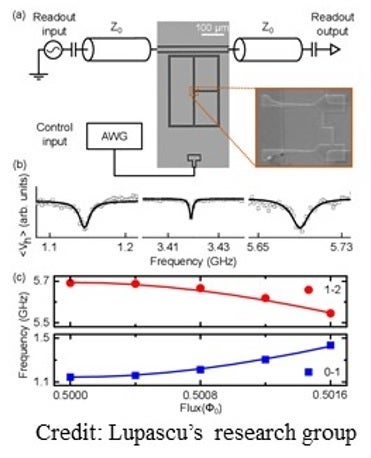I will discuss our recent work on quantum control of three-level systems implemented using superconducting devices.
In the first part of the talk, I will present our work on the implementation of a Walsh-Hadamard gate, which realizes the quantum Fourier transform, in a superconducting qutrit. The Walsh-Hadamard gate is implemented in an optimized way, combining two unitary operations, generated by off-diagonal and diagonal Hamiltonians respectively. The gate implementation utilizes simultaneous driving of all three transitions between the three pairs of energy levels of the qutrit, one of which is implemented with a two-photon process. The gate has an average fidelity of 99.2%, characterized with quantum state tomography. Compensation of ac-Stark and Block-Siegert shifts is essential for reaching high gate fidelities.
In the second part of the talk, I will discuss our work on the characterization of control using randomized benchmarking. Randomized benchmarking is a protocol used to characterize the average fidelity of gates in the Clifford group. This protocol is convenient due to its efficiency and robustness against gate state preparation and measurements errors. We present a first demonstration of this protocol in a superconducting qutrit, using a universal method for generation of unitary operations in a multilevel system, yielding an average gate fidelity of 98.9%.
This work outlines prospects for implementing qutrits and higher demensionality qudtrits with superconducting devices, with potential applications for improved quantum information protocols.
